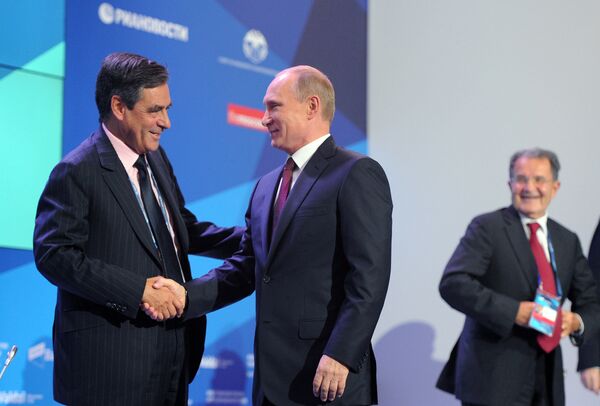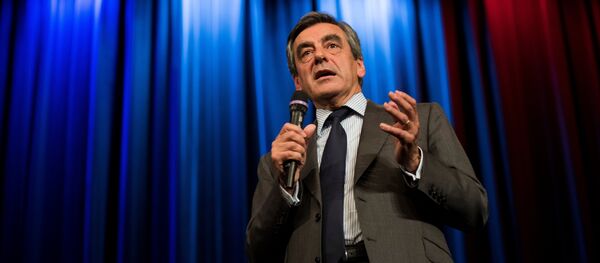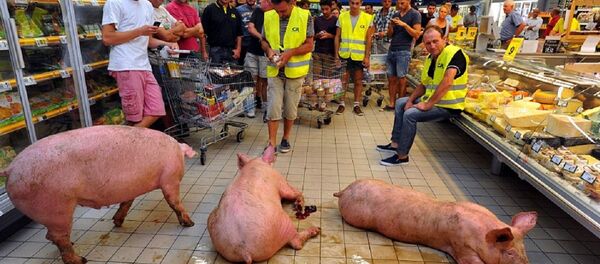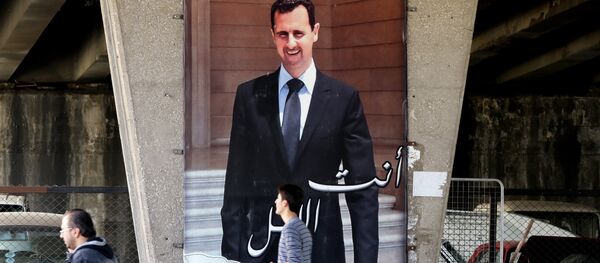A total of 55 percent of respondents consider Fillon, the presidential nominee from the center-right The Republicans party, is more likely to win than his rivals, an Ifop poll for the Jornal du Dimanche newspaper indicated.
However, despite these economic concerns, one fact is clear — the French are expecting Fillon to win the election. And this may imply that the presidential hopeful's views on Paris' foreign policy are playing quite an important role this time.
One of the things that helps Francois Fillon tower over the French political landscape is his sober stance on what role Paris should play on the international arena. Viewed as a true de Gaullist (follower of iconic President Charles de Gaulle's policies), Fillon wants France to be equally independent from the East and the West.
Let's dig deeper to puzzle out how France's political and economic independence are connected with Russia.
Fillon's de Gaullist stance must be resonating with Frenchmen who cannot but notice how the Fifth Republic was drawn into the fresh round of the US-Russia standoff against its will. Back in 2015, Fillon said "Europe has lost its independence" and said "the US is dragging it into a 'crusade' against Russia, which absolutely contradicts European interests."
Logically, Fillon advocates ending the mutually destructive sanctions' tug-of-war, which would kick-start France's economy.
French lawmaker and former defense minister Gerard Longuet told Sputnik that Fillon "would use France's diplomatic authority to try to reach an agreement between Europe and Russia".
As for the Ukrainian conflict serving as a cornerstone of rebuilding the edifice of EU-Russia relations and scrapping the sanctions, Fillon clearly stands out by calling on Kiev to implement the Minsk agreements — this draws a thick line between his rhetoric and the mainstream mantra of illogically blaming Moscow for Kiev's intentional or unintentional inability to deliver on what is has promised to do in written form.
His rival, Socialist Party candidate Prime Minister Manuel Valls, criticized Fillon's "pro-Russian" stance.
"I see a strong pro-Russian sentiment in Francois Fillon that makes me think he would not protect properly the independence of France," Valls said in an interview to Brut outlet.
But Fillon's views are in fact perfectly rational and well-targeted rather than leaning toward any kind of "special relationship" with a certain country. What Valls describes as a "pro-Russian sentiment" is in fact a desire to restore economic ties and to eliminate the threat of terrorism. The "Russian card" is just a facade covering France's pending issues.
Fillon became the party's nominee after winning against rival Alain Juppe in November's primaries.
The French presidential elections will take place in April and May 2017. Various polls indicate that Fillon is likely to face off with far-right candidate Marine Le Pen from the National Front. The ruling Socialist Party is lagging far behind after its popularity plunged during President Francois Hollande's term.
Amid the Socialist Party's cast-iron policy, Francois Hollande's approval rating hit 4 percent and he bowed out of the race — is it not a barometer showing France is in need of a fresh wind of change?




